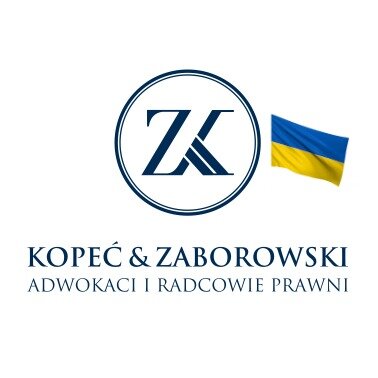Best Banking & Finance Lawyers in Warsaw
Share your needs with us, get contacted by law firms.
Free. Takes 2 min.
List of the best lawyers in Warsaw, Poland
Poland Banking & Finance Legal Questions answered by Lawyers
Browse our 1 legal question about Banking & Finance in Poland and read the lawyer answers, or ask your own questions for free.
- Re: Seeking Legal Service
- Attn Counsel, I am seeking legal representation regarding a breach of a loan agreement involving a significant outstanding balance. This matter requires close attention because of its financial implications and the violation of contractual obligations. Please let me know if this falls within your area of expertise. If so, I... Read more →
-
Lawyer answer by ADVISER Armkencht & Partners attorneys-at-law
Dear Mr. Aleksander Nowak, Thank you for reaching out and for your interest in our services at ADVISER Armknecht & Partners. We specialize in corporate law, contract law, and related disputes, including breaches of agreements with significant financial stakes, such...
Read full answer
About Banking & Finance Law in Warsaw, Poland
The banking and finance law in Warsaw, Poland is determined by national and European Union (EU) regulations. Polish banking law includes areas related to credit institutions, financial institutions, bank accounts, bank secrecy, and e-banking. It also covers investment funds, financing of commercial transactions, capital markets, financial instruments, and securities law.
Why You May Need a Lawyer
The complexity of banking and finance law in Warsaw may necessitate hiring a lawyer in various situations. Some common scenarios can include seeking counsel when setting up a new banking or financial institution, understanding regulatory protocols, investment disputes, or dealing with banking fraud. When facing bankruptcy, facing a business acquisition, seeking credit facilities, or dealing with capital market transactions, legal advice is also necessary. Moreover, lawyers can provide assistance with contract review, financial litigation, and ensuring compliance with financial regulations.
Local Laws Overview
The laws around banking and finance in Warsaw are governed by various legislation including the Banking Law Act, the Payment Services Act, the Financial Market Supervision Act among others. There is a strong emphasis on consumer protection, financial stability, and transaction transparency. The Polish Financial Supervision Authority (KNF) is the domestic regulatory body overseeing the soundness and security of the financial sector. Additionally, as a member of the European Union, Poland also adheres to EU banking regulations such as PSD2 for payment services.
Frequently Asked Questions
What is the role of the Polish Financial Supervision Authority (KNF)?
KNF oversees the operation of banks, credit institutions, financial market participants, insurance companies and other financial institutions. Their role is to ensure the stability, proper functioning and transparency of Poland's financial market.
Do Polish banks comply with foreign laws as well?
Yes, based on the nature of international banking, banks in Warsaw must abide by applicable international laws, including EU regulations, and sometimes even U.S laws like the Foreign Account Tax Compliance Act (FATCA).
Can a lawyer assist in corporate finance matters?
Yes, lawyers specializing in banking and finance law can provide assistance in various corporate finance issues such as loans, capital increases, securities issuance, financial restructurings, and more.
How does consumer protection work in terms of banking and finance in Warsaw?
Polish law has robust consumer protection regulations. This includes laws related to misleading advertising, unfair contractual terms, and rules around credit agreements for consumers. The Office of Competition and Consumer Protection oversees these regulations.
What is the procedure to open a bank account in Warsaw?
To open a bank account in Warsaw, you will typically need an ID or passport, a NIP number (Tax Identification Number), and proof of address. The terms and process can vary between banks, some may require a minimum deposit as well.
Additional Resources
For further information, you can consult the Polish Financial Supervision Authority webpage, the Office of Competition and Consumer Protection, or visit the EU's official website for comprehensive European financial regulations. Other useful resources include online law databases news portals, or banking and finance law firms providing free insights and articles.
Next Steps
If you are in need of legal assistance regarding banking and finance in Warsaw, your first step could be to consult a lawyer specializing in banking and finance. They can guide you according to your specific situation and help ensure that your financial transactions are in line with national and EU laws. After an initial consultation, your lawyer may suggest further steps such as negotiating contracts, representation in legal cases, or filing necessary documents with financial authorities.
Lawzana helps you find the best lawyers and law firms in Warsaw through a curated and pre-screened list of qualified legal professionals. Our platform offers rankings and detailed profiles of attorneys and law firms, allowing you to compare based on practice areas, including Banking & Finance, experience, and client feedback.
Each profile includes a description of the firm's areas of practice, client reviews, team members and partners, year of establishment, spoken languages, office locations, contact information, social media presence, and any published articles or resources. Most firms on our platform speak English and are experienced in both local and international legal matters.
Get a quote from top-rated law firms in Warsaw, Poland — quickly, securely, and without unnecessary hassle.
Disclaimer:
The information provided on this page is for general informational purposes only and does not constitute legal advice. While we strive to ensure the accuracy and relevance of the content, legal information may change over time, and interpretations of the law can vary. You should always consult with a qualified legal professional for advice specific to your situation.
We disclaim all liability for actions taken or not taken based on the content of this page. If you believe any information is incorrect or outdated, please contact us, and we will review and update it where appropriate.
Browse banking & finance law firms by service in Warsaw, Poland
Warsaw, Poland Attorneys in related practice areas.
















